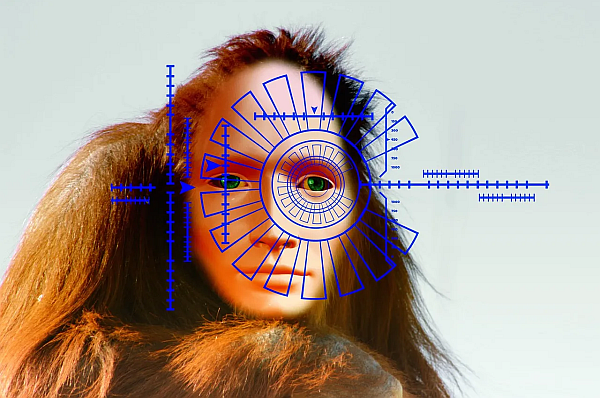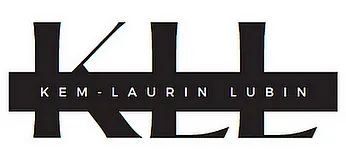Thank you to Kem-Laurin Lubin, PH.D - C for sharing her knowledge and expertise with us.
You can read this article on Medium as well.

Image by Gerd Altmann from Pixabay
“Computers are incredibly fast, accurate, and stupid. Human beings are incredibly slow, inaccurate, and brilliant. Together they are powerful beyond imagination.” — Albert Einstein
Recently, while scrolling through my LinkedIn feed, I stumbled upon a thought-provoking quote by a tech leader, though their name eludes me now. The quote was along the lines of:
“AI is like a skelton that animates or is the animation of humanity, with Culture being its heart."
Sidebar: Given that I chose not to interact with this post, I have since lost sight of it, hence the reason I did not provide a screen shot of it above.
This paraphrasing of the tech leader’s insight struck me as fundamentally flawed. As I hovered over the “Like” button, I hesitated. Surprisingly, the post had garnered numerous likes and re-shares, which only intensified my urge to offer some critical perspective. In that moment, it reminded me of other tech maxims, such as the once frequently echoed “move fast and break things” — a phrase Mark Zuckerberg has since come to regret, prioritizing innovation at all cost including human cost. In fact today it is more a case of moving fast and breaking hearts as we pick up the broken humans.
This reflection, on tech leaders’ statements, made me ponder the deeper implications of their words in our rapidly evolving digital landscape. What are their motives and how are we affected by such seeming intellectual rhetoric?
On LinkedIn, the “Insightful” button often becomes my default response, a decision I make with a deep awareness of the ever-present Digital Activity Dust Collectors. Each like, swipe, or hover is a breadcrumb, contributing to a digital portrait of our preferences and opinions. This user likes this, supports that, loves something else.
The data mining is relentless.
Masked as personalization, it’s a stark reminder that our online activities are scrutinized far beyond mere preference tracking. I’ve come to think of these mechanisms as “Digital Information Raiding Trackers” (D.I.R.T). Using the “Insightful” button allows me a form of neutral engagement, a pause to reflect on whether I truly agreed with the content before contributing to the digital footprint that continually paints our online personas.
Reaction options on LinkedIn

Anyway, back to my story — I was about to hit that yellow Insightful button when I thought how reductionist and irresponsible a view to put out there into the ether. It has never been more critical than now to qualify these sorts of blanket quotes by “leaders du jour,” with a deeper understanding of AI, human anxieties without making it even more confusing for many.
In response to this misguided valuation of AI in human life, I would say this instead, as a late response that required some deeper thinking.
AI represents an unprecedented, unique and selective intersection of human data, collected under diverse, often opaque conditions, as it strives to emulate aspects of the human essence. However, it is inherently limited, echoing the biases and variances of the data it feeds on, and learns from.
The sole intellectual endeavour of AI is a continuous pursuit of mirroring human complexity, but it can never fully encapsulate the richness and unpredictability of human culture.
Culture remains the vibrant core of all emergent human trends, a dynamic and ever-evolving tapestry that AI can attempt to reflect but NEVER authentically recreate.
The true essence and spirit of humanity, with its depth of emotions, experiences, and cultural nuances, always remains beyond the algorithmic grasp.
In light of the ever-growing presence of AI in our lives, as discussed in both academic and casual writings, it’s vital to remember that AI, at its core, is a tool. Its integration into our daily existence is inevitable, yet it should not be seen as a threat to our unique human essence. Instead, as we embrace AI, we must use it as a catalyst to further highlight and cherish the rich tapestry of our biological uniqueness. AI offers us a mirror to our own complexities, prompting critical thinking about who is behind the technology and their motives. It is a reminder that, while AI can assist and augment our capabilities, the irreplaceable depth, creativity, and emotional richness of human experience remain solely ours. As we continue to explore the binary nature of technology, let us do so with the assurance that AI is an extension, not a replacement, of our humanity. This mindset will empower us to harness AI responsibly and creatively, ensuring that as we evolve alongside these advancements, we retain the essence of what makes us distinctly human.

About me: Hello, my name is Kem-Laurin, and I am one half of the co-founding team of Human Tech Futures. I am currently pursuing a doctoral degree (University of Waterloo). My research inquires into identity construction through contemporary case studies (judicial) that demonstrate how citizens’ data is collected and utilized. Whether data is illicitly harvested or willingly shared, the resultant algorithmic constructions wield immense power over users whose identities are quantified through information. My research objectives are to (1) develop a critical understanding that will then allow me to (2) produce concrete heuristic principles for use in AI powered design systems (as informed by my professional experience in systems design).
Professionally I practice as a Principal HCD Strategist and Design Thinking Coach. Prior, I led large Design and Research teams in HCD at Blackberry Autodesk and also worked at Siemens in German, USA. In my spare time, I build layered gardens with a tropical vibe while my 135 pound GSD looks on. Today I feel blessed to have traveled to over 25 countries before the world transformed to what it is today; I was able to experience a good breadth of human experiences. Periodically, I give back as an active mentor to my students, and many burgeoning critically thinking HCD Researchers who seek to make the world a better place.*